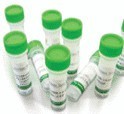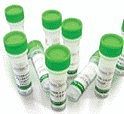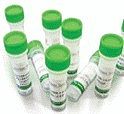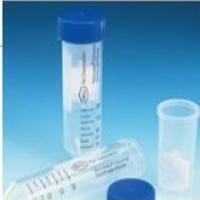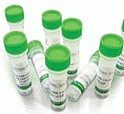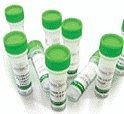相关产品推荐更多 >
万千商家帮你免费找货
0 人在求购买到急需产品
- 详细信息
- 询价记录
- 文献和实验
- 技术资料
- 供应商:
上海研卉
- 英文名:
Recombinant Human Tissue Plasminogen Activator
- 保存条件:
低温
- 规格:
10ug
产品详情
Plasminogen Activator Inhibitor-1 (PAI-1, Serpin E1) is a member of the serpin family of serine protease inhibitors, and is the primary inhibitor of urokinase and tissue plasminogen activator (tPA). PAI-1 is expressed predominantly in adipose, liver and vascular tissues, but is also produced by certain tumor cells. Elevated levels of PAI-1 are associated with obesity, diabetes and cardiovascular disease, and increased production of PAI-1 is induced by various obesity-related factors, such as TNFα, glucose, insulin, and very-low-density lipoprotein. The obesity-related elevation of PAI-1 levels, along with the consequential deficiency in plasminogen activators, can lead directly to increased risk of thrombosis and other coronary diseases. Accordingly, PAI-1 has been implicated as an important molecular link between obesity and coronary disease. PAI-1 can also specifically bind vitronectin (VTN) to form a stable active complex with an increased circulatory half-life relative to free PAI-1. Recombinant Human PAI-1 is a 42.7 kDa protein containing 379 amino acid residues.
Source: E.coli
Synonyms: Plasminogen Activator Inhibitor-1, Serpin E1
AA Sequence: VHHPPSYVAH LASDFGVRVF QQVAQASKDR NVVFSPYGVA SVLAMLQLTT GGETQQQIQA AMGFKIDDKG MAPALRHLYK ELMGPWNKDE ISTTDAIFVQ RDLKLVQGFM PHFFRLFRST VKQVDFSEVE RARFIINDWV KTHTKGMISN LLGKGAVDQL TRLVLVNALY FNGQWKTPFP DSSTHRRLFH KSDGSTVSVP MMAQTNKFNY TEFTTPDGHY YDILELPYHG DTLSMFIAAP YEKEVPLSAL TNILSAQLIS HWKGNMTRLP RLLVLPKFSL ETEVDLRKPL ENLGMTDMFR QFQADFTSLS DQEPLHVAQA LQKVKIEVNE SGTVASSSTA VIVSARMAPE EIIMDRPFLF VVRHNPTGTV LFMGQVMEP
Purity: ≥ 95% by SDS-PAGE gel and HPLC analyses.
Biological Activity: Determined by its inhibitory effect against single chain tPA induced cleavage of a chromogenic substrate in Imidazole Buffer at 37°C. Half maximal inhibition against 1.0 µg/ml of single chain tPA was obtained at a concentration of 2.0 µg/ml.
Calculated Molecular Weight: 42.7 kDa
风险提示:丁香通仅作为第三方平台,为商家信息发布提供平台空间。用户咨询产品时请注意保护个人信息及财产安全,合理判断,谨慎选购商品,商家和用户对交易行为负责。对于医疗器械类产品,请先查证核实企业经营资质和医疗器械产品注册证情况。
- 作者
- 内容
- 询问日期
 文献和实验
文献和实验参与止血作用的血管主要是小动脉、小静脉、毛细血管和微循环血管,这些血管的功能和组织结构虽不完全相同,但基本上均可分为内皮层、中膜层和外膜层三部分。 (1)内皮层:由单层内皮细胞连续排列构成。它含有各种细胞器,其中棒管状小体(weibel-palade body)是内皮细胞特有的细胞器。内皮细胞可合成和贮存多种活性蛋白,包括血管性血友病因子(vWF)、组织纤溶酶原激活物(t-PA)、凝血酶敏感蛋白(TSP)、纤溶酶原激活抑制剂-1(PAI-1)以及凝血酶调节蛋白(TM)等等医学
参与止血作用的血管主要是小动脉、小静脉、毛细血管和微循环血管,这些血管的功能和组织结构虽不完全相同,但基本上均可分为内皮层、中膜层和外膜层三部分。 (1)内皮层:由单层内皮细胞连续排列构成。它含有各种细胞器,其中棒管状小体(weibel~paladebody)是内皮细胞特有的细胞器。内皮细胞可合成和贮存多种活性蛋白,包括血管性血友病因子(vWF)医学教育|网搜集整理、组织纤溶酶原激活物(t~PA)、凝血酶敏感蛋白(TSP)、纤溶酶原激活抑制剂~1(PAI~1)以及凝血酶调节蛋白
的作用是调控基因表达。例如组蛋白甲基化多导致基因沉默,去甲基化则相反;乙酰化一般是转录激活,去乙酰化则相反。当然,也可在此基础上产生复杂的生物学效应。例如组蛋白去乙酰化酶 HDAC 可影响免疫系统;H3K4me3、H3K9me2 能够调控记忆的形成, 而且 H3K 甲基化与 X 染色体失活、基因组印记和异染色质形成有关;H3 乙酰化通过多种机制调控以来 ATP 的染色质重塑 ,并参与炎症反应;H2A、H2B 泛素化则与 DNA 损害反应有关;而 H3S28 磷酸化与 H3K27 乙酰化可激活转录
 技术资料
技术资料暂无技术资料 索取技术资料


